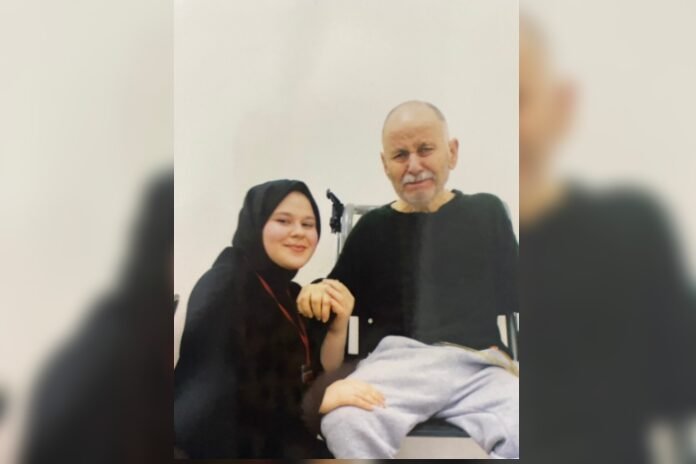Turkey’s Council of Forensic Medicine (ATK) has ruled that 72-year-old İbrahim Güngör, who suffers from advanced Alzheimer’s, is fit to remain in prison, despite concerns from his family about his deteriorating physical and mental health, the TR724 news website reported.
His daughter, Süeda Güngör, says his health has sharply declined. “He talked about staying at a friend’s house on the day he was taken to the ATK. At night, he tells the guards, ‘Don’t lock the door, my daughter is coming,’” she said. “He’s deeply depressed, hardly speaks, sleeps constantly, and other elderly inmates feed him.”
Süeda said she did not understand how ATK can find him fit to remain in prison. “Every visitation day, he asks, ‘Am I going home today?’ I don’t know what to tell him,” his daughter said. “He’s no longer himself, and yet they say he can stay in prison.”
The ATK frequently comes under criticism over its questionable reports that find ailing inmates fit to remain in prison. Rights advocates slam the agency over its lack of independence from political influence and its role in compounding the persecution of political prisoners.
Güngör’s health has steadily declined in prison, and during a previous visit he failed to recognize his daughter. Due to health concerns, the family has appealed to the authorities for his immediate release, as is provided for by law.
According to Law No. 5275, the sentence of a prisoner who due to a serious illness or disability is unable to manage life on their own under prison conditions and who is not considered a serious danger to society may be suspended until they recover. However, the stipulated suspension of sentence is often not implemented.
Güngör, sentenced to over eight years, was arrested on December 14, 2024 and sent to prison in İzmir after Turkey’s Supreme Court of Appeals upheld his conviction.
Charges against Güngor include hosting religious gatherings with the members of the Gülen movement, encouraging participation in movement activities and collecting donations for students. He was director of student affairs at İzmir Gediz University, a Gülen-linked institution that was closed under a government decree after a 2016 coup attempt.
Turkish President Recep Tayyip Erdoğan has been targeting followers of the Gülen movement, inspired by the late Muslim cleric Fethullah Gülen, since corruption investigations revealed in 2013 implicated then-prime minister Erdoğan and some members of his family and inner circle.
Dismissing the investigations as a Gülenist coup and conspiracy against his government, Erdoğan designated the movement as a terrorist organization and began pursuing its members. He intensified the crackdown on the movement following the failed coup in 2016, which he accused Gülen of masterminding. Gülen and the movement strongly deny involvement in the coup attempt or any terrorist activity.
In addition to Alzheimer’s Güngör suffers from prostate issues and diabetes, requiring a catheter and close medical attention.
In 2022, before his imprisonment, he underwent brain surgery for hydrocephalus, an abnormal buildup of cerebrospinal fluid deep within the brain, and a shunt was implanted to alleviate the pressure.
His daughter described the unsanitary conditions of his confinement as unsuitable for someone in his condition. “He can’t manage basic personal care like bathing or changing clothes,” she said. “At home, he couldn’t even use the bathroom alone due to balance issues. If he falls in that cell, no one will be there to help him. We fear for his life.”
Turkish authorities have frequently been criticized for their systematic disregard of the health needs of prisoners. Every year, rights groups report the death of dozens of sick prisoners, either while behind bars or shortly after their release, which often comes at the end-stage of their illness. Turkey recorded 709 deaths in prison in the first 11 months of 2024, according to data from the Ministry of Justice shared in response to a parliamentary inquiry.















